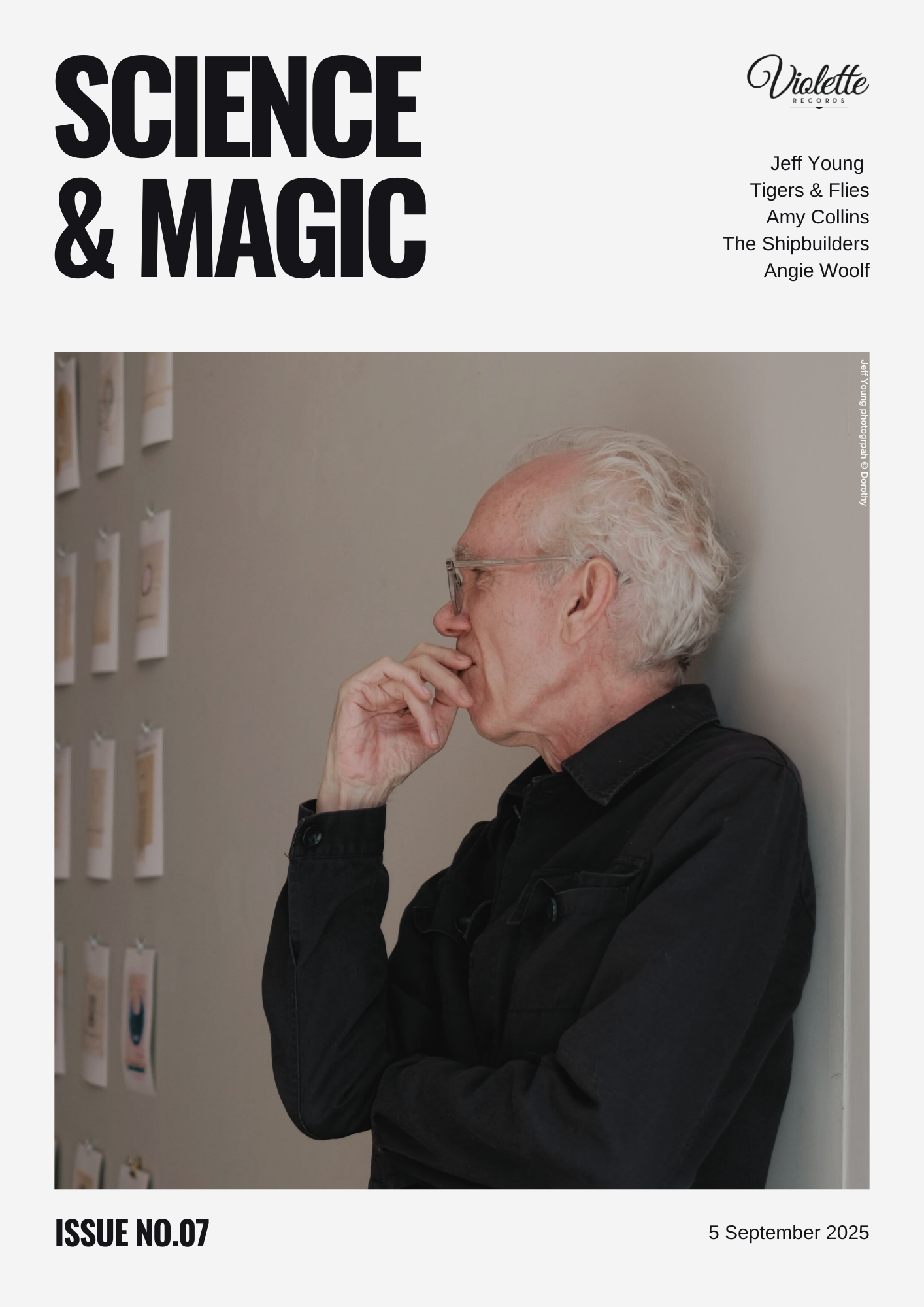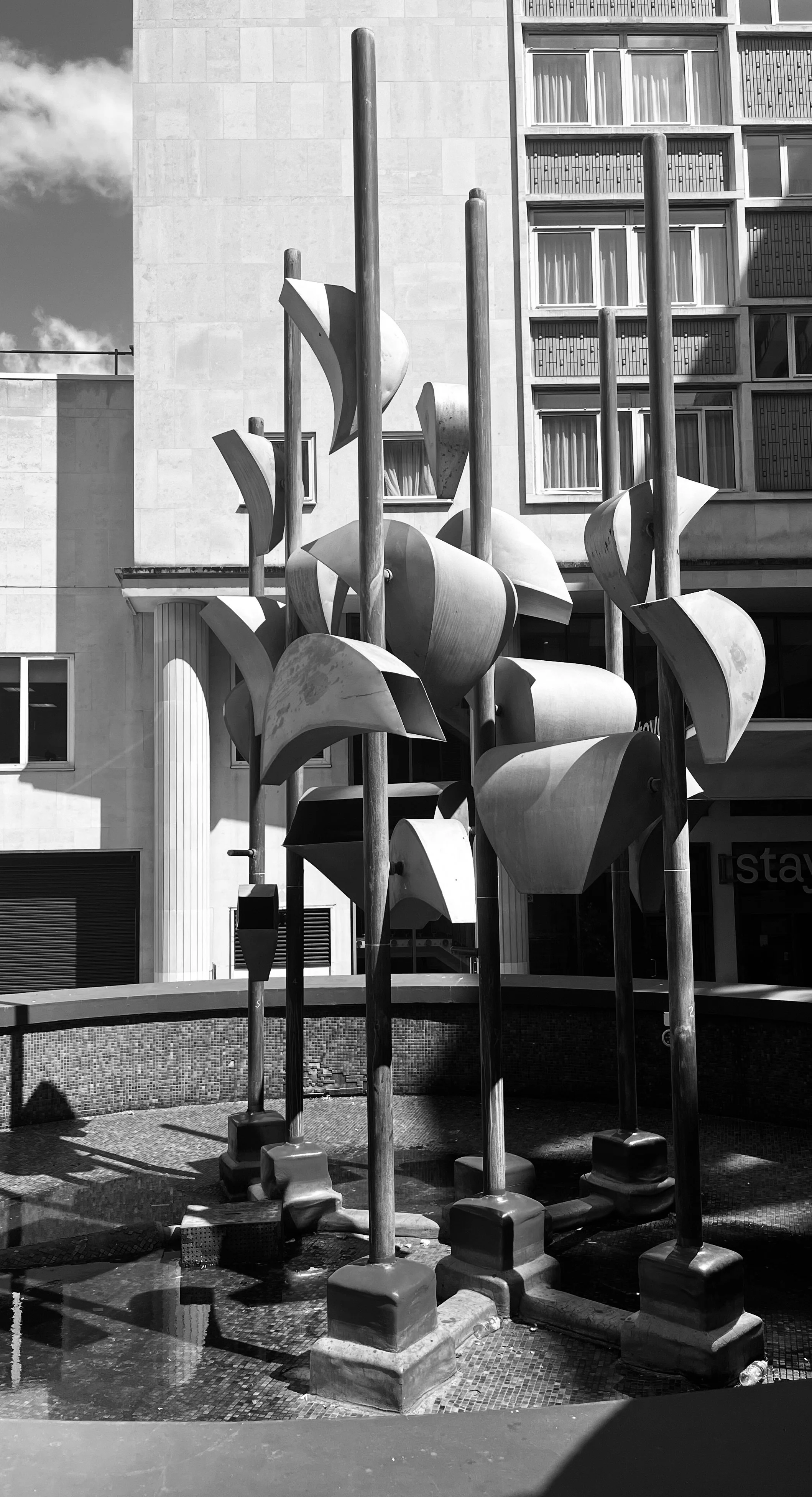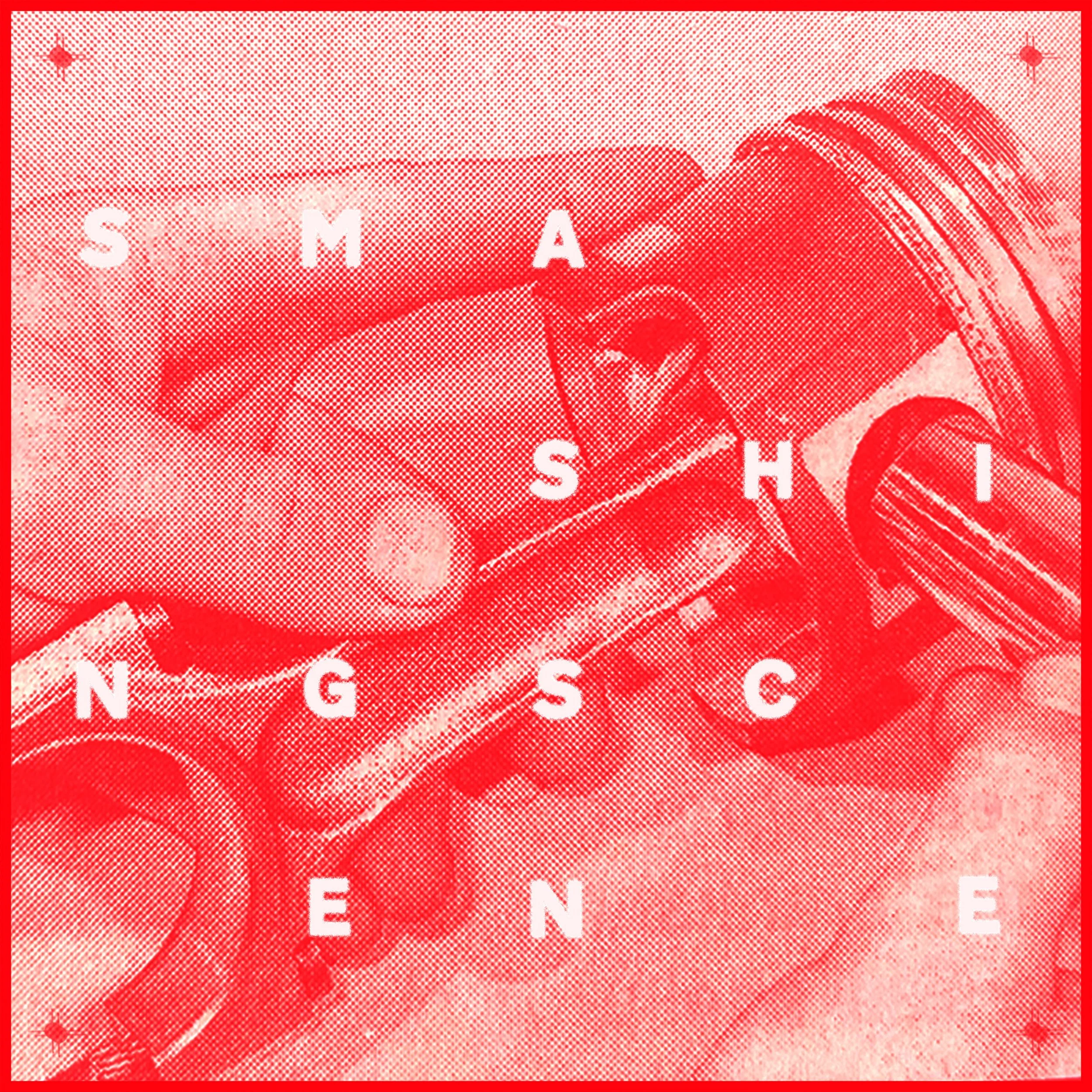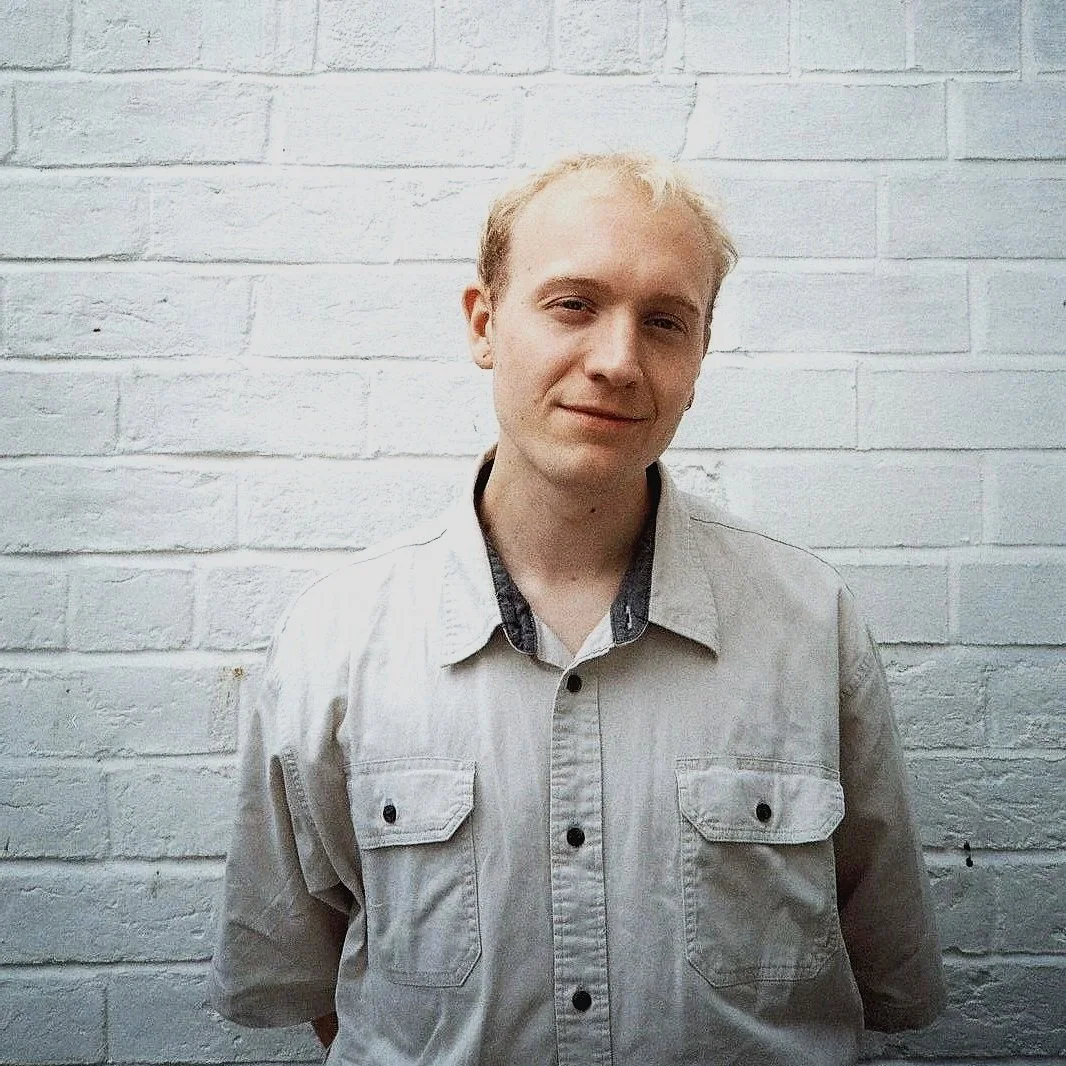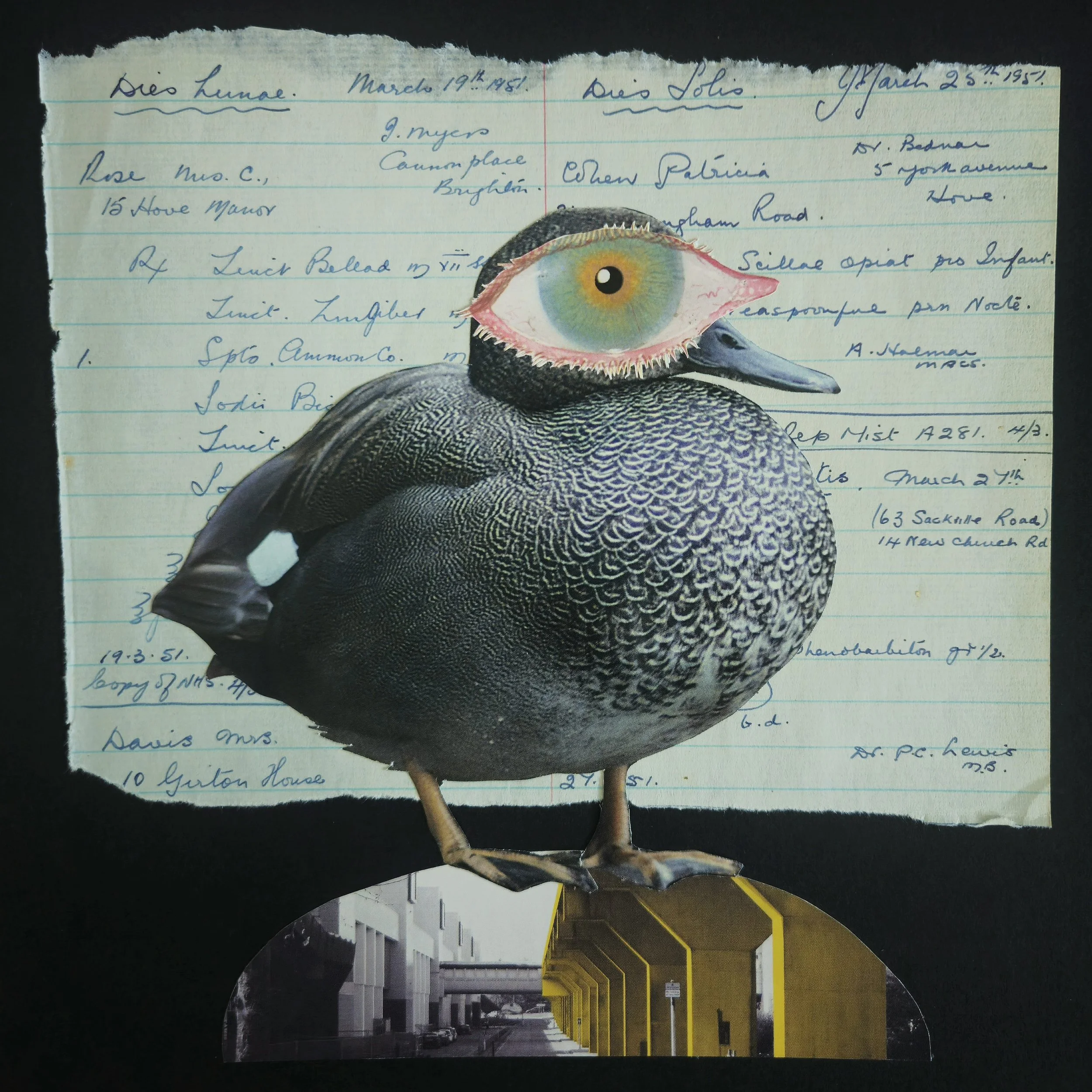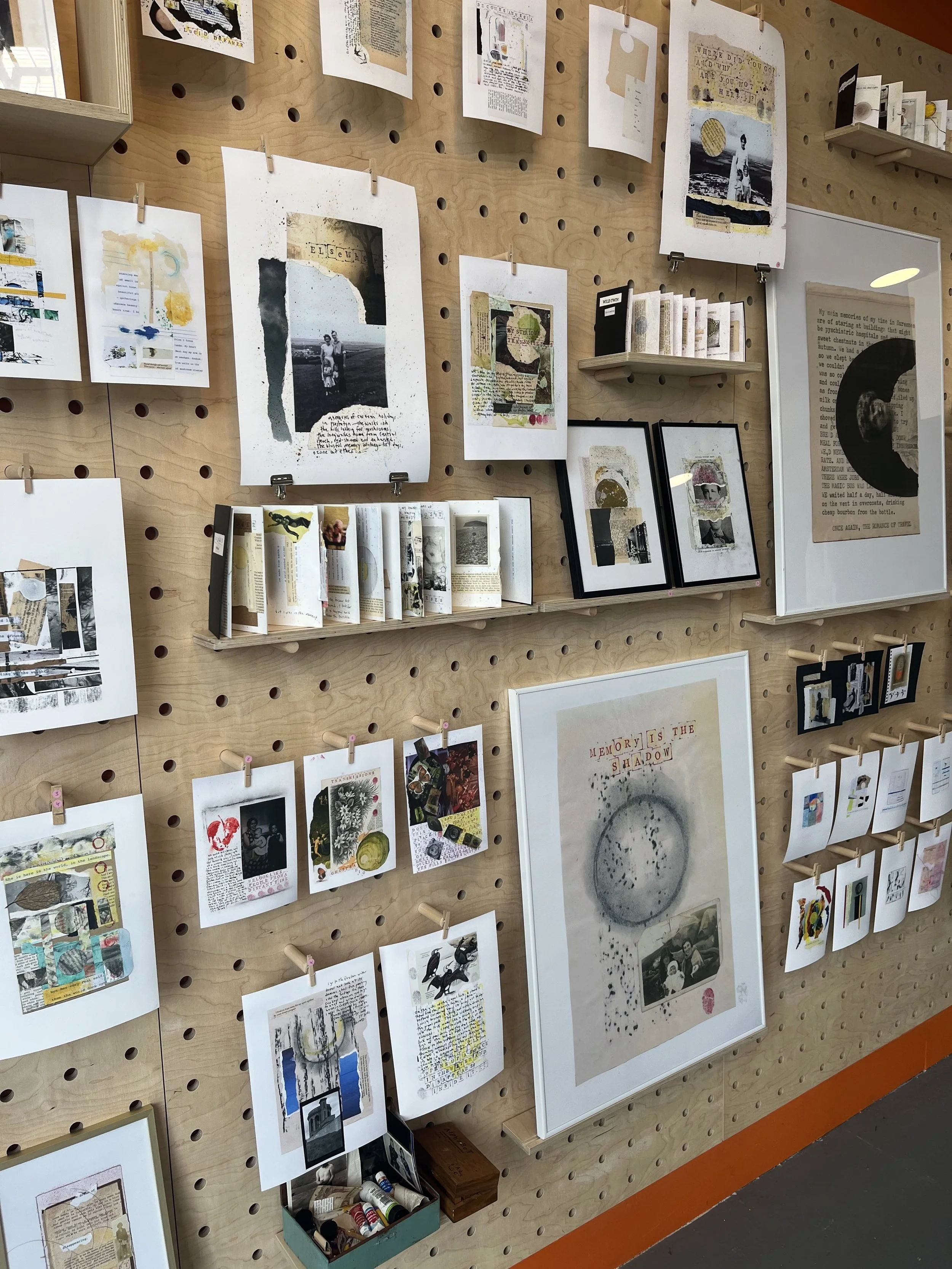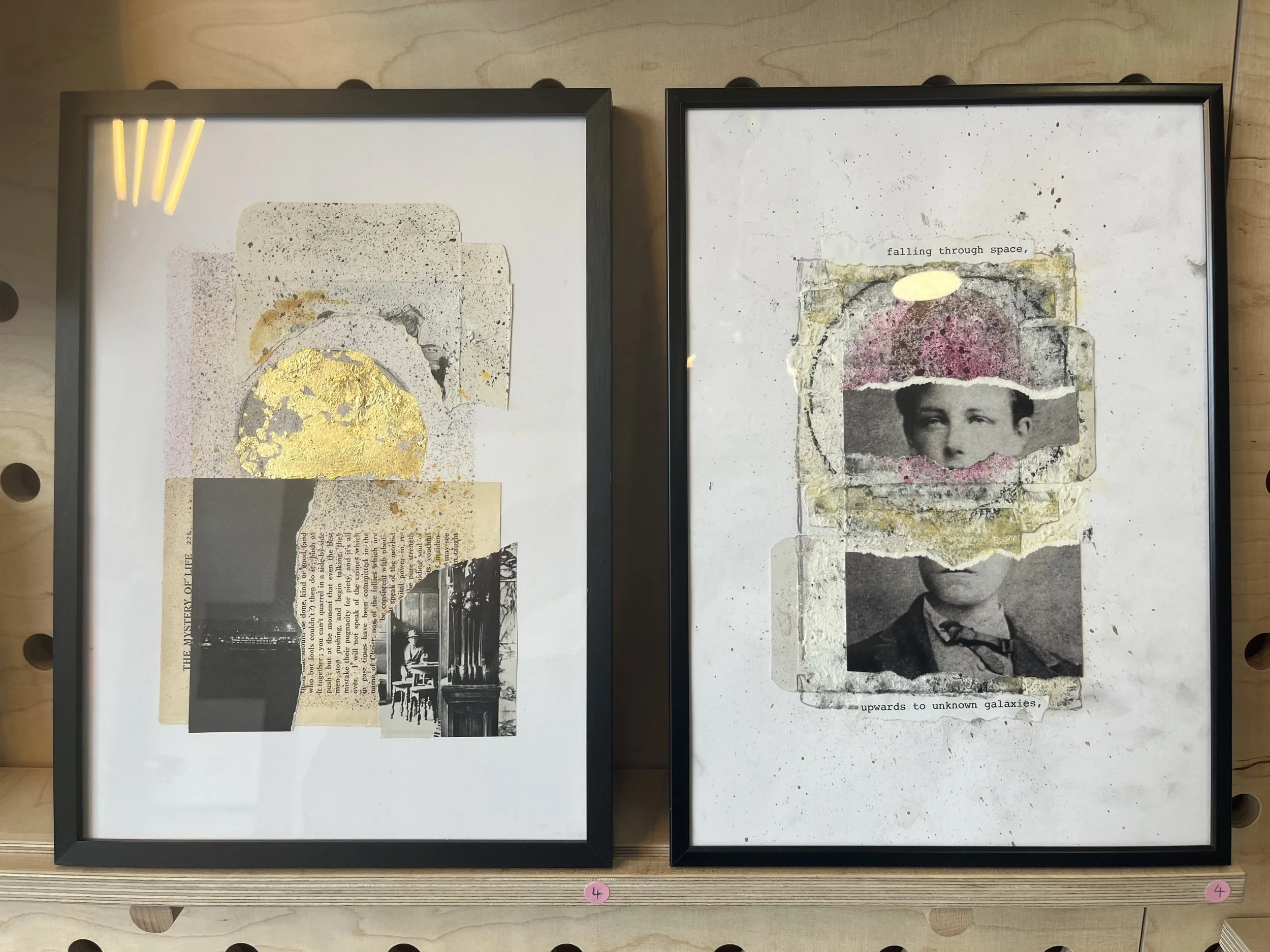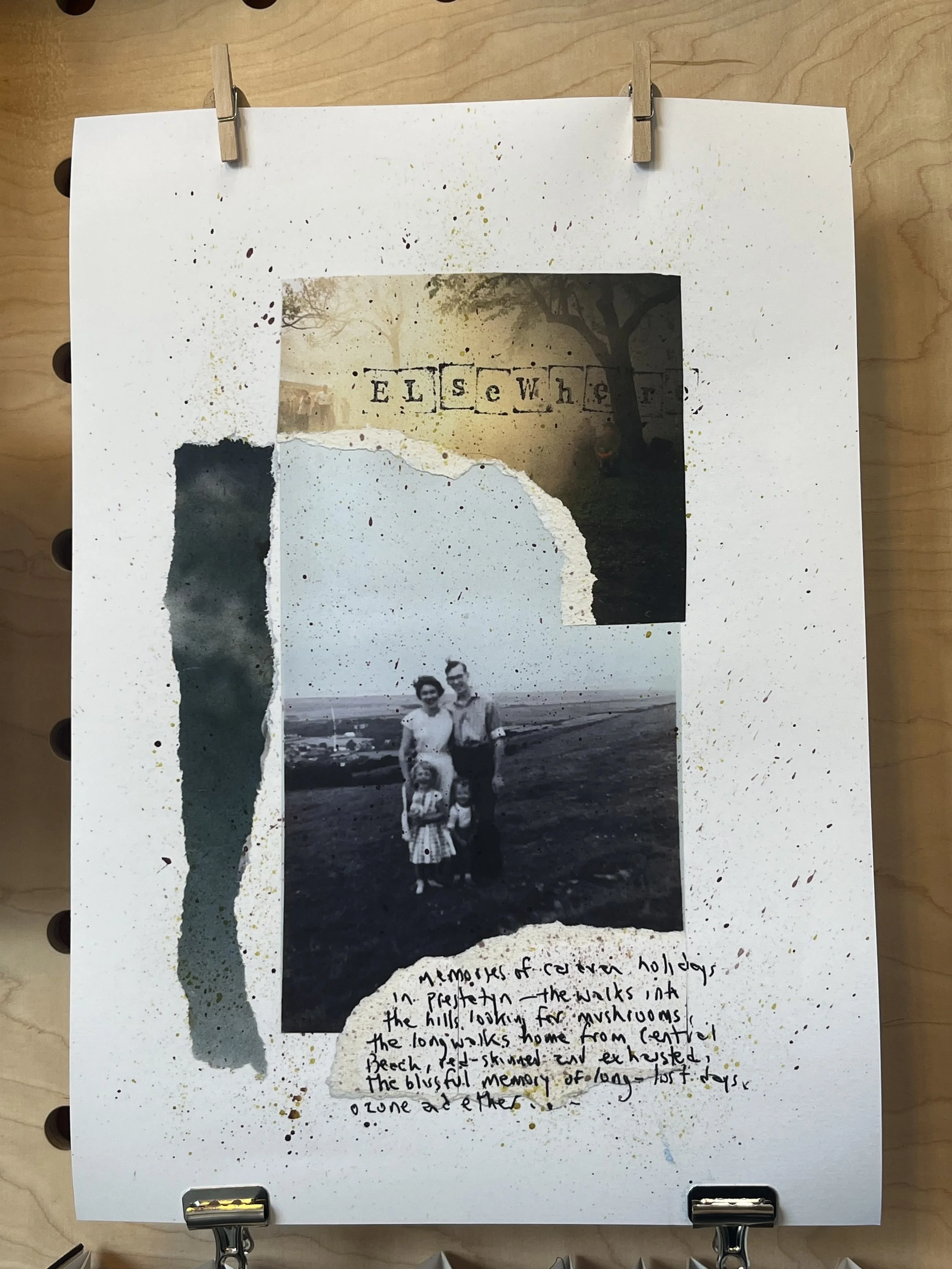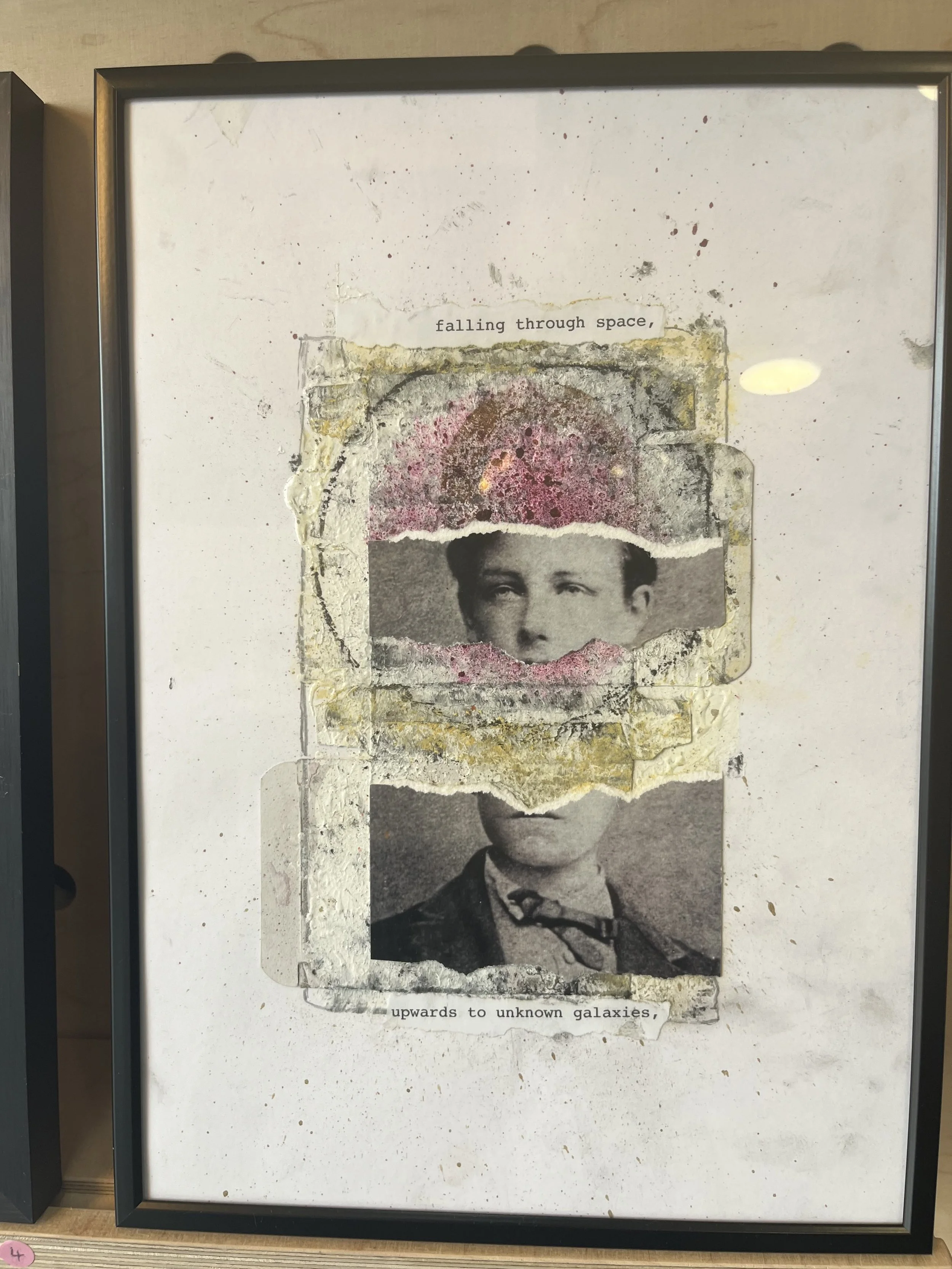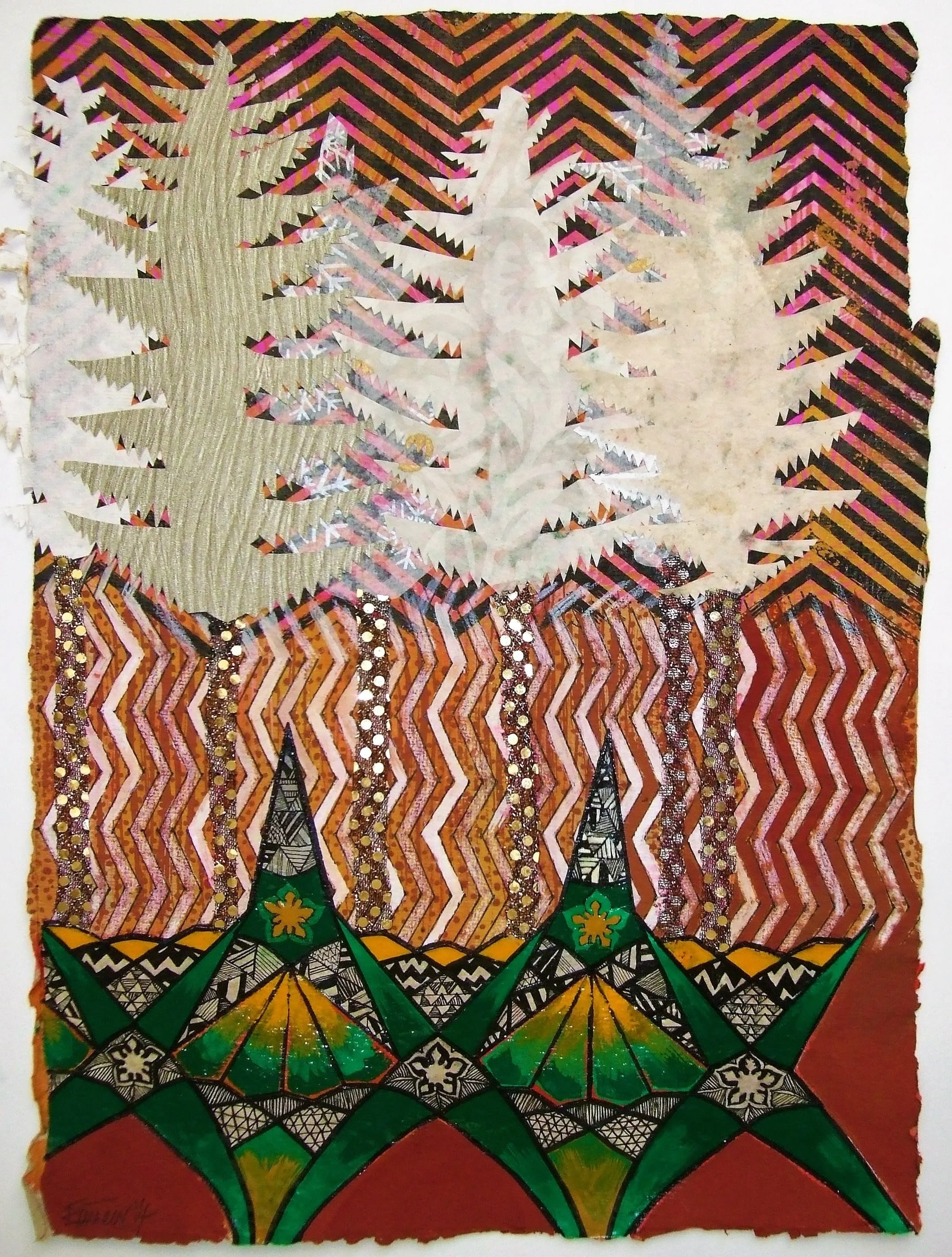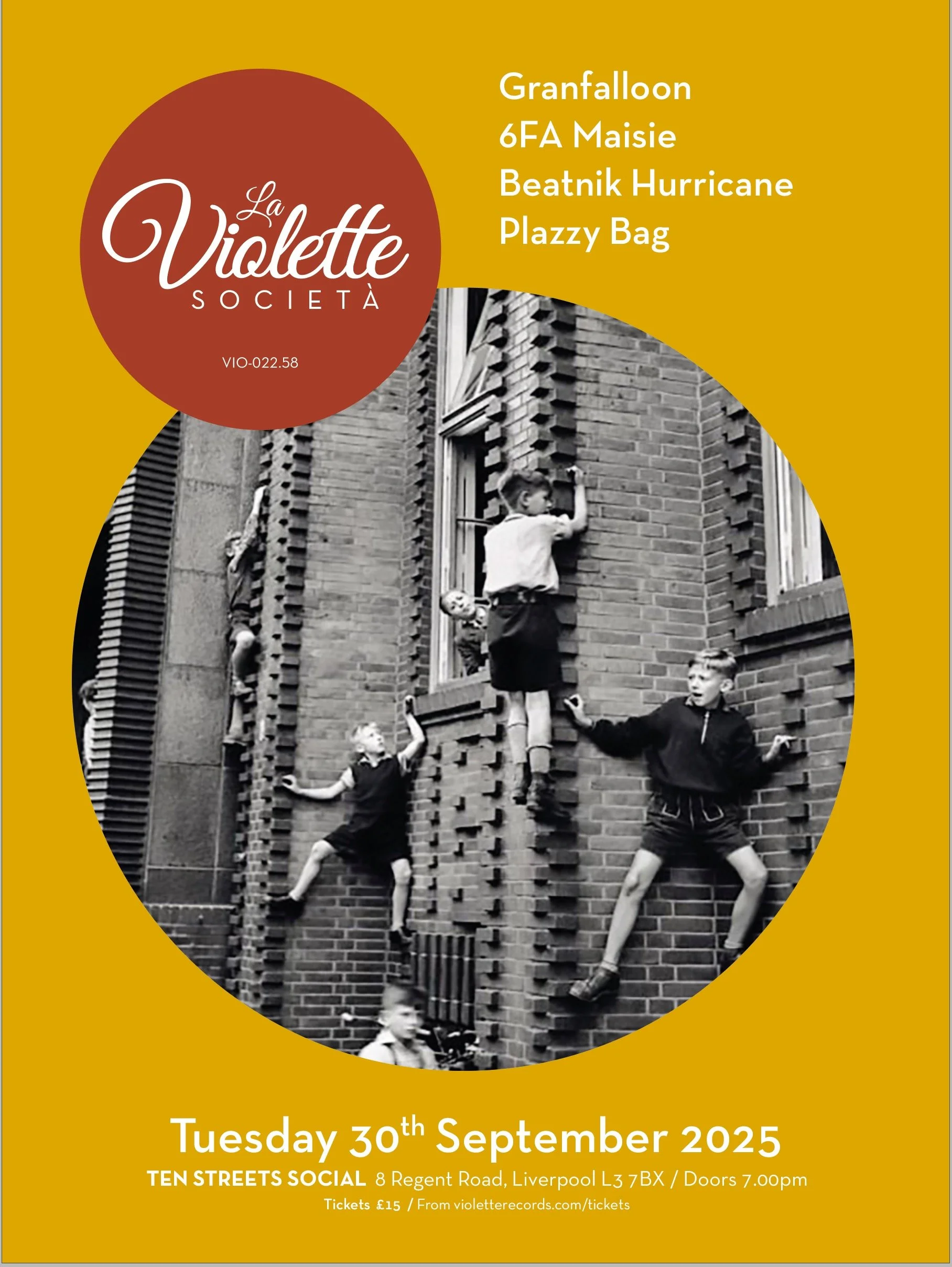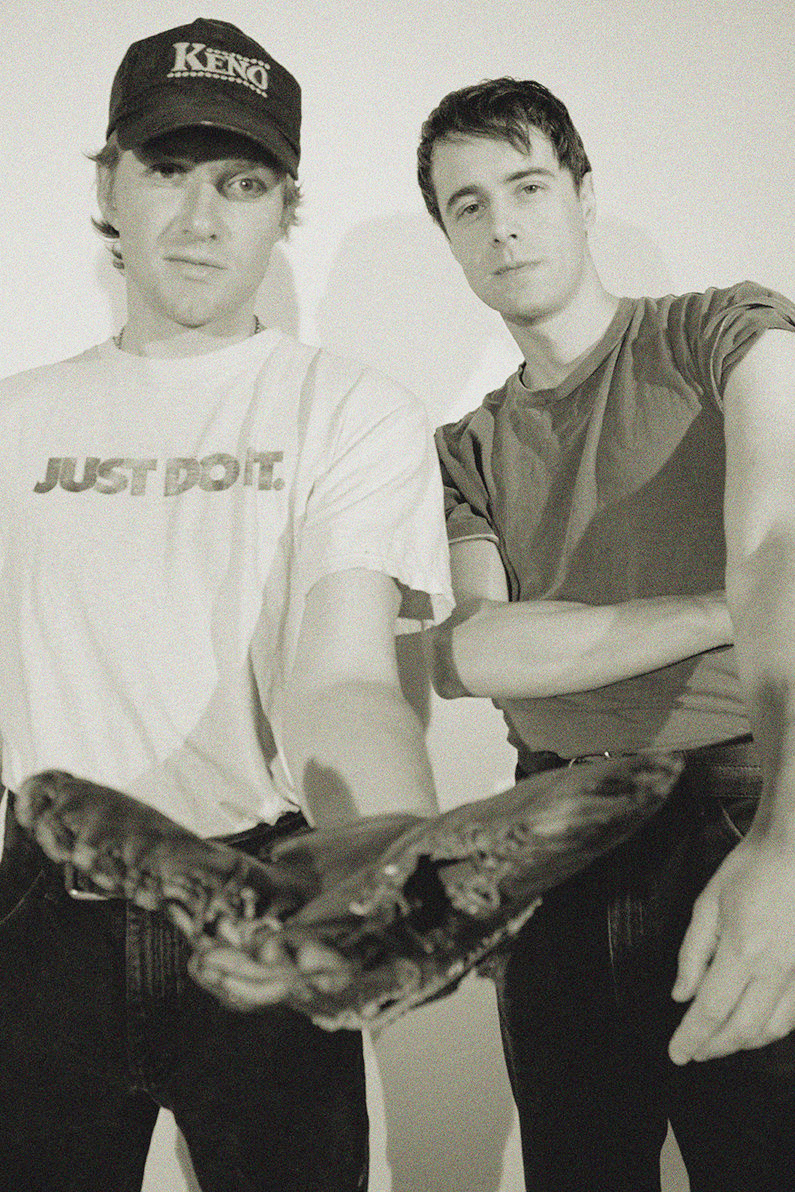Science & Magic | 7
Alcohol. Because no great story ever started with a salad.
It’s a comforting thought and validation for every pint that bled into another, every ill-advised late-night conversation that felt profound at the time. We tell ourselves that the best stories require a chemical catalyst, a certain blurry-edged permission to be interesting. Of cause it’s all a lie, one of many we also tell ourselves about the nature of creativity.
In this edition of Science and Magic, you’ll find a powerful, clear-eyed piece from Amy Collins that dismantles the myth. She argues that we’ve been defining creativity all wrong - mistaking it for a product to be sold or hung on a wall, rather than what it truly is: a fundamental, often messy, force for survival. Creativity, she posits, isn't about brush strokes or poetic words, it’s also about risk-taking, problem-solving and the ingenious methods we use to navigate the world. It’s the courage to admit you’ve hit rock bottom in a room full of strangers. That, she argues, is a story worth telling - no alcohol required.
The beautiful irony, of course, is that Amy’s own story - one of strobe lights, dance music and the enthusiastic discovery of ecstasy and mushrooms - didn't start with a salad.
This theme of finding truth in unexpected places runs through the entire issue, but you'll notice it has, by a happy accident, become something of a Jeff Young special edition. His stories never start with a salad either. Hmm.
Alongside his regular Magnetic North dispatch - a journey through Liverpool's secret alleys and portals - we also feature a review of his Haunted Paper exhibition, written with the insight of Darcie Chazen. And as if that weren't enough, Jeff recently compiled a playlist, which we share here with you, for the Misadventures in Music podcast, which he assembled with the kind of meticulous, heartfelt care that most people reserve for naming their firstborn child. This triple-bill of contributions alone warranted this edition’s cover photo.
Meanwhile, a ten-question expedition into the mind of Matty Loughlin-Day from The Shipbuilders reveals a life lived in and through sound. Eimear Kavanagh returns from a pilgrimage with a piece on Death as a silent companion, Ange Woolf finds grace in darkness, and Maya Chen continues her vital lexicography of Gen Alpha slang. Finally, Tom Roberts makes a compelling case for the dark synth of Safe Mind, and we celebrate our latest release today of the new Smashing Scene EP from the sensational Tigers & Flies.
These are the stories we found when we weren't looking for anything in particular. We hope you find one that speaks to you.
Matt
Ten Questions
with Matty Loughlin-Day
A songwriter's internal landscape is a peculiar ecosystem, a place where the poetic vision of the likes of Federico García Lorca can co-exist peacefully with the ghosts of Merseybeat. Matty Loughlin-Day, the frontman and principal architect of The Shipbuilders, navigates this territory with a rare and easy grace.
Matty’s philosophy extends to his band's DIY ethos, fostering a genuine scene through their brilliant Club Shipwrecked nights and championing a music community built on shared passions. The Shipbuilders make records their own way so they can build their own world. Their latest album, This Blue Earth, is a true ‘statement album’ rightly earning critical acclaim. It deserves our ears.
Some musicians simply answer the questions; Matty presents his workings out here too. A simple query about a favourite sound blossoms into a thoughtful consideration of tides, foghorns and birdsong before landing on the only answer that truly matters: the sound of his son’s laughter. Each response sifts through the layers of memory and influence that have shaped him. This is a Q&A and a field guide to a life lived in, and through, sound.
● What's your favourite sound that isn't music?
For some reason, with these questions, I feel I need to show my workings out, explain myself a bit. For this one, I considered so many things; my favourite birdsong (the Blackcap)? The shuffle of the ebb and flow of the tide along the coast? The sounds of a storm raging outside and the rain battering the rooftops, whilst you are safe and warm inside? I nearly considered the sound of foghorns - I live near the coast and there's a strange juxtaposition of their sound; they're both haunting and comforting at once. But then, there's one obvious answer that I was trying to avoid, as it borders on cliché, but it's cliché for a reason - the sound of my son laughing. He's just turned two and the freedom and abandon in his howls when I'm acting the goat or playing my strange music - there's a purity in it like nothing else. In that moment, the drudgery and the evils of the adult world fade away, and the sheer innocence of youth is momentarily restored.
I do like the sound of a distant train, though.
● What album would you press into the hands of an 18-year-old today, insisting they listen to it front-to-back right now?
It'd be easy to say (Shipbuilders' This Blue Earth aside, you must understand...) something like Forever Changes or The Magical World of The Strands, but if you're remotely into half decent music, those albums would find their way to you in time; all roads lead back to them.
So, I'd be tempted to give them albums that open up new avenues, put them on a different path all together. I'd consider Rain Dogs by Tom Waits or The Black Saint & The Sinner Lady by Charles Mingus, but having given this some reflection, it'd likely be In A Silent Way by Miles Davis. It's not his most far-out record, nor his most representative, but it stands at such a crossroads, that it would set this malleable 18 year old up for an absolute voyage of discovery. It's proto-fusion, there's elements of ambient, there's studio trickery and magic, there's a million different routes in and out of it, that you wouldn't necessarily stumble upon by listening to, say, The La's, John McLaughlin, Miles Davis, Tony Williams. It's just a new universe to get lost in.
● If you could time-travel to witness one musical moment in history, when/where would you go?
I've thought about this plenty, and there are loads. Being in the room Robert Johnson is recording in, being at the One Love Peace concert in Jamaica as Bob Marley gets Edward Seaga and Michael Manley on stage to shake hands, being in the room while John Coltrane's band blow off the doors of perception as they record Ascension. But every time I hear 'Riverman' by Nick Drake, I am absolutely floored by the fact the whole thing was recorded live. The impecable guitar, played in 5/4 no less! - perfectly, the mellifluous vocals and then those haunting, swooping strings. All live, in one take. Imagine being in that room. It genuinely gives me shivers to think about it.
● What's the last album or song that made you stop whatever you were doing and just listen?
One of the projects I do is a series of semi-regular radio shows/podcasts, called Shipwrecked. At the tail end of last year, I asked for recommendations for an end of year show, compiling the best stuff from 2024 and someone suggested Cold Sea by Oisin Leech. I wasn't aware of him, or his previous band, The Lost Brothers, but the album absolutely knocked my proverbials off. The opening three tracks in particular are sensational and the production is spot-on - you can practically taste the salty air of the coast. It's got Steve Gunn on, who produced it, and amazingly Tony Garnier, Bob Dylan's longtime bassist, which is magical. I lived inside the record for a few weeks, unable to listen to anything else.
● What song feels like it knows something about you that you never told anyone?
Can I cheat here, and go for albums? If so, The Decline of British Sea Power by, well, British Sea Power. They are, if push comes to it, my favourite ever band and probably the band that had the biggest impact on my life - musically and otherwise. Although I've loved every album by them, this one is imprinted upon me and I've half joked that when I die, I want to be cremated with it. I feel like if anyone wanted to know me, truly know me, all they'd need to do would be listen to this album. It's all there.
● What's the first record you saved up to buy with your own money?
Oh, I'd love to say something really edgy and cool here, but it was Desireless by Eagle-Eye Cherry. Would it have been 1997? The year that 'Save Tonight' was absolutely everywhere. I think I bought it in Southport Woolworths. I loved it, and I can't listen to it now without being that 10 or 11 year old boy, so even though if I heard it now for the first time, I'd likely think it were trash, it still touches me. I had it on the other week in a fit of nostaliga and my wife asked me why I was listening to such rubbish, and whilst objectively I couldn't deny it or answer it, subjectively, it was because I was being transported to that first night I'd bought it, listening to it whilst I slept on the fold out couch-bed in our back room on my Mum and Dad's hi-fi.
● Which artist from Liverpool deserved to be huge but wasn’t?
Jimmy Campbell, and every project he ever got involved in. He's our (Liverpool's) greatest songwriter, and I include you-know-who in that. Someone - and I believe it might have even been Violette's Matt - once said that he was McCartney and Lennon on two legs, and that is bang on - plus more. There was no-one like him. I had a few years of being absolutely obsessed with him and his work. I started researching him, in the hope of writing a book about him, and interviewed some former band members of his, but then, true to cliché, along came our beautiful boy (middle name James...) and a new Shipbuilders album, and that project got shelved. I need to get back to that. If anyone has any information or leads or anything to contribute, please do get in touch - the man deserves a statue at the Albert Dock.
● Who’s the person who gives you the best music tips today?
It might sound like heresy - but it's the algorithms. Apps or websites like Radioooooo! or Bandcamp, rateyourmusic or the incredible have led me to some amazing places, and although it is easy - and often correct - to dismiss the internet and streaming, there is a side to it that is undeniably brilliant. The fact I can be turned onto music recorded in the Western Sahara in the 1930s just as quick as the latest sounds in, I don't know, Sudanese Jazz or Estonian electro, is a thing of wonder. It can be overwhelming, can't it, but I've made some amazing discoveries over the last decade or so.
That aside, Carl Roberts of Gintis sends me lots of stuff - sometimes it's life-affirming stuff, other times it's the Mighty Mighty Bosstones.
● Which person most shaped your musical taste before you turned 18, and what specific record or gig did they introduce you to that changed everything?
My Uncle Al. Although music was around in our house, it wasn't particularly dominant, and I largely found my own way with getting into Oasis as a young lad, then The La's, then came The Coral - all very typical for a boy of my generation. My Uncle Al introduced me to Shack and The Strands, which whilst brilliant, was still in line with my worldview, but then when I was about 16/17, and had a record player, he gave me his copies of Searching For The Young Soul Rebels by Dexy's Midnight Runners and the first Big Audio Dynamite album. To appropriate Joe Meek, I was hearing new worlds, and things like Oasis became a distant memory. ‘For God's sake, burn it down...’
● What song should be the new national anthem?
Sticking with Dexy's, whenever we used to put nights on at the much lamented and much missed Carnival Brewery, we would end every night with 'This Is What She's Like' and I'd urge everyone to give it their full attention to it - all 12 minutes of it. It's utterly brilliant and bonkers, in equal measures. Or failing that, and given the alarming rise of the far-right on this fractured isle one of ours - 'Flagpole' maybe - ‘never trust a man with a flagpole in his garden’.
● What song became the anthem of your first teenage friendship group, played endlessly during that one unforgettable summer?
I don't think my mates necessarily knew it was our anthem at the time, but I had a Verve (pre 'The-') bootleg called Voyager 1, and I hammered it relentlessly the summer we finished our GCSEs. There was one song on there in particular, called 'South Pacific' and it remains one of my favourite recordings of all time. It was only recently added to Spotify, but minus the bizarre sample of a smooth-jazz Leonard Nimroy song (honestly, I'm not making that up) that prefaced it when it was a genuine bootleg.
Every time I hear it, with Nick McCabe's tsunami wave of a guitar and Pete Salisbury's booming drums, along with Richard Ashcroft's drug-addled wailings, I'm taken straight back to being at Otterspool prom, all of us simultaneously plotting our futures whilst ignoring the world, drinking whatever cheap beer we could get our hands on. Watching the River Mersey thundering out to sea, listening to 'South Pacific' on a crappy tape player I'd bought - it's a core memory. Despite many of my answers here, I'm not one for nostalgia, but every now and then it doesn't hurt to dip your toe back into a time when the world was full of possibility and the future was up for grabs. Glory days.
Magnetic North
by Jeff Young
7 : Falling Water
“Strangeness, eccentricity, secrecy and wonder are constantly being erased...” —Ghost Town
Sometimes in the city we forget to look at the spaces in between, forget to look for the wild and strange, for the magical. Turn that corner, feel the very atmosphere change, enter a place that feels like a dream. When I was a child, my parents took me to see what appeared to be a metal waterfall in a place where there was music in the air. I think this was the day I first listened to the city – not to the sound of cars and buses but to a different music composed by a mad inventor. The beautiful orchestra I was hearing was the unexpected sound of falling water and it was coming from some kind of waterfall machine in a clanging, gushing, whoosh of pure joy. This wonderful illusion was the creation of the sculptor Richard Huws who wanted to bring – in his words – ‘the restless, temperamental sea’ into the city.
In 1967 when I first went to see the Bucket Fountain I was overwhelmed by the joyous comedy of this mechanical wonder. I realise now that Richard Huws was a Lord of Misrule, lifting the city’s spirits. By altering a humdrum place, he was tilting the city’s axis towards the surreal, transforming this small corner of the city into a playground and bringing the laughter of children – and grownups – into the business district, rising above the death-song of traffic jam and car horn. But on recent visits there has been no falling water, and the square is now a building site. There is no falling water, no laughter. For the developers the fountain is an irritant and they want Huws’s machinery of joy to be dismantled.
What if we walk through the city looking for the wild, the strange, the anarchic? What if we stop thinking of the city as a place of mere transaction and think of it as a place of childlike wonder and lucid dreams? So many places and people are disappearing. The bucket fountain is what gives this place meaning; if they remove this mad and beautiful machine there will be no reason to ever visit this city square again.
— Jeff Young, 3 September 2025
—
Jeff Young's work is an act of quiet, determined resistance against forgetting. As the current holder of the prestigious TLS Ackerley Prize for his memoir, Wild Twin, he has become the city's unofficial custodian of its disappearing magic - the strange, the wild and the eccentric things that give a place its soul. His dispatch this week, a eulogy for the silenced Bucket Fountain, a mechanical wonder he remembers as a ‘beautiful orchestra’ of pure joy, now threatened by the relentless hum of development.
This process of documenting what might be lost is at the heart of his work. You can see the raw materials of this practice in Haunted Paper, his exhibition of collages and notebooks, which is now in its final weeks at Dorothy in the Baltic Triangle. For another perspective on this remarkable show, be sure to read Darcie Chazen’s insightful review elsewhere in this edition. Jeff continues to map these shadowlands for us each fortnight, a cartographer of the city's heart.
Smashing Scene EP
by Tigers & Flies
Today, Tigers & Flies release their new EP Smashing Scene on September 5th with a limited vinyl edition following in October.
Picture this: a London basement, mid-show blackout. Tigers & Flies stand powerless as their amps die - then hear their audience singing every word back to them, unaccompanied. That moment crystallises four years of them building something real.
The Manchester five-piece (Arthur Arnold, Eddie Wigin, Arvin Johnson, Matteo Fernandes, Risha Alimchandani) formed during COVID lockdowns, graduating from university straight into a music scene that barely existed. Their Violette Records 2021 debut Among Everything Else elp completely sold out on 10" vinyl. The 2024 Nervous Entertainment EP refined their post-punk-meets-jazz attack.
Now Smashing Scene captures their evolution: four tracks of angular guitars and brass-knuckle horns, with Arthur's vocals cutting through the noise. Think XTC's wit meets Gang of Four's urgency, but filtered through Manchester's musical DNA and shaped by pandemic-era isolation-turned-community.
Their live shows explain everything. Audiences watch and participate, creating the communal experience that saved the band when the lights went out. This is music as necessity: sweat-soaked, life-affirming and loud enough to drown out everything else.
Tigers & Flies prove that when everything falls apart, music survives. Turn it up.
Release Details:
Smashing Scene EP: September 5th, 2025 (digital/streaming)
Expanded Play LP: 24 October 2025 (100 limited edition 180g vinyl, catalogue VIO-082)
Pre-orders coming soon via Violette Records
Live Dates across the country in October - TBA
Smashing Scene EP was recorded at Air Tight Studios in Manchester. Engineered by Seadna McPhail, Mastered by Jason Mitchell (PJ Harvey, XTC, Christine & The Queens, Imogen Heap).
Despite his love of misinterpreted and misheard lyrics, Arthur Arnold obliged to give us an exclusive track-by-track insight into the songs on Tigers & Flies’ Smashing Scene EP.
Silver Lashings :
His mind’s like a borstal
It keeps his eyes dry
You’re gonna need your rage
If you want to survive
Lyrics written after viewing Ken Loachs’ television film Cathy Come Home [1966] - though the songs’ themes are largely unrelated to the motion picture. The song centres around the expression of feeling and authenticity, envisioned through imaginations of the Luddite movement.
Contents: Two (not one) percussion blocks; space; frustration; wondering.
Hulme Highstreet Ablaze :
It’s on the horizon
Hulme Highstreet Ablaze
It strikes me like lighting
Hulme Highstreet Ablaze
This feels like Tigers & Flies’ quickest song, and that is because it is Tigers & Flies’ quickest song. It contains a John Cage inspired pause in the middle of the second chorus, just to let the first part of the song sink in with a period of silence, before the second part blasts through you.
Enoch’s Hammer :
That’s a machine, man.
It doesn’t have a heart -
That’s a mad - man
With a spanner for a heart.
The Luddites were around for quite a few years - arguably they are still around today - surely they deserve to be the subject of more than one song by Tigers & Flies? Of course they do, and this is it. Only, this one is about love, too.
Going to Bed :
I was in town
Pulling out my hair
As you
Pull out the rhythm
A song about running away from one’s woes by means of slumber - for in your dreams, you might just find the love you seek during waking hours. The lyric above, however, also nods to the possibility of escaping woe on the dance floor.
Listen out for: a splash cymbal that was hit with a jump by Matteo Fernandes; the whole group taking the vocal reigns in the final chorus; a very avoidant attitude to discomfort.
Tigers & Flies : Matteo, Arthur, Eddie, Risha and Arvin
Dolly Parton’s Face In A Tea-Stain
By Amy Collins
It’s a well-worn idea that we’re all born creative, and most of us lose it as we grow up. A challenge, then, to those who think you’re either born with it or you’re not. Funny how it’s often the ones who believe they don’t have it who think it’s that simple.
Part of the problem is how neatly people define creativity — music, art, literature, theatre. A subject. A product. Something you can teach, sell, or hang on a wall. We live in a capitalist world; people conflate creativity with production.
This narrow view doesn’t just alienate the self-appointed ‘non-creatives’ — it tortures artists too. I spent years beating myself up for not living up to my creative potential. I dropped out of my Art and English degree at Liverpool Hope in 2004 after discovering ecstasy and mushrooms in a very enthusiastic manner. I’d moved to the city at 18 after growing up near Moel Famau (v. rural). Suddenly, I was escaping my reality of crippling social anxiety, chaotic family systems, and deep self-hatred — whilst also tapping into the lifestyle and lyrics of my drug-addled music idols: The Velvet Underground, The Slits, The Doors, Jefferson Airplane, The Beta Band, The Libertines, SFA, The Streets…
I got into dance music, then every weekend was Human Traffic come to life — Chibuku, Cream, The Lemon Lounge, and endless house parties. It was immense. I even submitted some wild coursework about the relationship between strobe lights, music beats, and dancing — a visual representation of an ecstasy trip. My tutor loved it, but I mainly wanted to get off my barnet and call it research!
Then I got referred to a psychiatrist and had to quit uni.
The art stopped. The poetry stopped. But the drinking and using didn’t. Whatever shame I’d been running from multiplied by a hundred.
My family were disappointed. They subscribed to another well-worn idea — that artists need a creative outlet, or they’ll shrivel up and die. Or at least won’t be the best version of themselves. A lot of people hold this romantic view – it’s damaging to think that someone’s worth is linked to productivity.
I’m 41 now and eight years into addiction recovery. I happen to be in a productive art phase — making collages, taking photographs, trying all kinds of printmaking techniques. I’ve even had a profitable design business within the last 10 years. But I’ll tell you this: I was just as creative during the years after quitting uni, even in the worst times of addiction when I couldn’t imagine picking up a brush or pen. My thinking was just as creative when all I wanted to do was consume instead of create.
To me, creativity means risk-taking. Not just brush strokes or poetic words. It’s the decisions you make, the clothes you wear, the messages you send. It’s daring to imagine. It’s invention, problem-solving, resourcefulness — sometimes simply making ends meet. In active addiction, creativity can be the lies you tell, the secrets you keep, the ingenious methods you use to stay in destructive behavioural patterns. It’s the way you deceive people — including yourself. It’s finding new ways to get higher and drunker, and it’s risking losing everything.
Luckily, creativity is also knowing how to make the children in your life giggle. It’s dancing like a dickhead. It’s allowing yourself to love and mending something broken. It’s the applications you fill in and how you handle rejection. It’s taking a chance on a soufflé. It’s spilling your tea and noticing Dolly Parton’s face in the stain. It’s belly laughing on a tourist boat, reading P.G. Wodehouse, not caring who sees. And it’s absolutely — admitting you’ve hit rock bottom, sitting terrified in a room full of strangers, bearing your soul, asking for help. Hang that on your wall.
We are all life-long creative beings. What gets lost after childhood is the ability to play. The courage to be bad at something but have a go anyway. The bravery to feel openly proud. It gets hijacked by shame, fear, and self-loathing — things most grown-ups don’t manage to swerve in their lifetime. People also don’t give themselves enough credit for the level of creativity it takes to simply survive this world.
Someone once asked me if I’m more creative now that I’m sober.
No. I’ve always been creative.
Even as a raver, lost in the pulse of a 2manydjs set at Cream, Vicks vapour rub tingling under my nose.
Even as a miserable retail assistant, hungover and late again, spinning excuses like poetry.
Sobriety didn’t give me creativity — it gave me access to a healthier version of it.
Now, I move through the world with clarity. I create with intention, forgiveness, and love. I engage with my community and share what I’m learning. I use creativity to care for my mental health.
Sometimes that looks like something I could frame.
Sometimes it looks like falling over at a roller disco.
Sometimes it looks like sitting in front of the TV watching the Detectorists without feeling guilty.
The question isn’t whether you’re creative — it’s what is getting in the way.
—
Amy Collins is an artist, photographer and lifelong music obsessive. After years working at HMV and a stint travelling the world, she landed back in Liverpool and threw herself into creative projects — from DIY radio shows to her enamel pin brand PinHead. As a mature student enrolled on a marketing degree she had a serious breakdown that led her into addiction recovery – the best decision she ever made. These days, she works behind the scenes at Liverpool School of Tropical Medicine, helping global research projects run smoothly. Outside of work, you’ll find her crouched on the pavement photographing flaking paint on shop facades — finding beauty in things most people walk past.
Haunted Paper - exhibition at Dorothy in Liverpool
by Darcie Chazen
Haunted Paper invites a chance to step inside the private world of writer and artist Jeff Young, one of Liverpool's most celebrated creative minds.
The exhibit presents archives of notebooks and collages for the first time, compiling years’ worth of ideas, notebooks and testings of ideas, and is almost like walking through somebody’s creative mind library but often getting distracted by fine details before moving swiftly on again. I walked round a few times and as usual, different images would stand out the second time round. If I was to pick a song to accompany the setting of the exhibit I would select ‘An Ending (Ascent)’ by Brian Eno, as it could fill the room with calmness and promote nostalgic feelings and connections to Young's works.
Other than the Liverpool Biennial and the Independents Biennial in Liverpool this year, I haven't specifically attended any art shows for a good while now, so when I was invited to attend this exhibition, I felt excited to immerse myself.
The notebooks on display feel like living archives, with collected beer mats and bus tickets and both typewritten and handwritten notes. There was a striking moment for me when I saw the glowing yellow and pink circle threaded with fine lines of ink, radiating like a sun or an unfinished constellation. There are pale washes of paint that transform how the information is received.
I feel what makes Haunted Paper so compelling is the way these works reveal Young’s creative process. With this comes a sense of vulnerability and relatability. The collages are not separate to the writing, but part of its very foundation.
Looking at the notebooks up close, you sense this ritualistic quality. Each page feels both improvised and intentional, a way of catching those often rare and fleeting moments before they vanish entirely.
The work resonates with traditions of collage and assemblage, yet it also feels deeply personal. These are not polished, gallery-ready works in the conventional sense, but intimate documents of a creative life.
While walking through the studio at Dorothy in the Baltic Triangle, the notebooks read less like static objects and more like portals. You feel free in the moments you are watching and reading and everything feels calm and like it should do. Any making is like alchemy because no matter how complex the outcome, there has been a new creation of something that didn't exist before.
I also came away feeling inspired to revisit some of my own archived work. Haunted Paper reminded me that old material doesn’t have to stay fixed. It can be reworked and reshaped, allowing fragments of the past to generate new meaning and spark fresh ideas. I also like the thought of an artist not realising they are a visual artist at first, simply collecting and assembling over time, until the work gradually emerges as a visual tapestry.
For anybody who's interested in the intersection between art and writing, I'd absolutely recommend going to see Haunted Paper before it closes later this month.
Haunted Paper runs 7 August to 19 September 2025
Monday - Friday 9am - 5pm
Saturday - Sunday - Closed
Dorothy, 22 Jordan Street, Liverpool, L1 0BP entrance is round the corner on Jamaica Street
—
Darcie Chazen is a Liverpool-based artist working across visual and performative practices. Her work explores themes of grief, absurdity and humour, alongside an ongoing personal movement practice that serves as both a ritual and a release. Through collaborations with music, community projects and complementary therapies, Darcie embraces curiosity and playfulness as guides within her creative practice.
What’s Been Following You?
by Eimear Kavanagh
Since birth, Death. Like a silent companion.
It seems as though the first half of my life, I didn't need to think about death. I was immortal and had less care for destruction to my body. Then the second half of my life I'm made more aware of death, doing all the things to fix the body where the damage was done. The first half was fun, the second half is something really beautiful.
Lately I have been walking around my local graveyard and visiting graves from the 1800's. One in particular. I don't know why, well I do actually, it was the beech tree. Looking so majestic in its old age it drew me in. The gravestone sitting right beside the tree trunk holds a story of tragedy. But I became curious about what might be happening beneath the ground, and the possibility of the remains of the grave becoming so entangled within the roots of the tree, that the family have become as much part of the tree as the leaves and branches.
The graveyard gives me the sense of the passing of time and the knowing that there is nothing to be fearful of, but quite the opposite. The infinity of the universe, the mystery of it all somehow tells me everything about life on earth is insignificant and there is a far bigger and better otherworld waiting. Everything is perfect as it is.
Love, Eimear
—
Eimear Kavanagh has recently stopped using calendars. She now marks the passage of time by the arrival and departure of specific migratory birds, a system she finds far more feathery than the conventional Gregorian model. Recent work apparently stems from a series of conversations with a flock of geese who had very particular ideas about the use of ochre. She creates her pigments from local clays and berries. I recently asked her what she was working on and she replied, with complete seriousness, that she was trying to paint the sound of a particularly self-aware goose. I'm still not entirely sure what that means, but I can't stop thinking about it.
The Gen Alpha Lexicography
by Maya Chen
05: 'Ohio'
Etymology: Internet meme culture, ‘only in Ohio’ format, evolved into adjective circa 2022-present
Gen Alpha: born after 2013, raised with AI assistants as conversation partners and tablets as pacifiers.
I spent twenty minutes last week trying to understand why my son described our neighbour's garden gnome collection as ‘totally Ohio.’ Having never been to Ohio myself, I asked if he meant it looked American, or perhaps agricultural. He stared at me with the patient despair of someone explaining particle physics to a golden retriever and said, ‘No, Mum. Ohio means weird.’ Apparently, an entire American state has been conscripted into service as an adjective meaning bizarre, chaotic or inexplicably strange.
‘Ohio’ is Gen Alpha's geographical shorthand for ‘this defies logical explanation.’ It's not about the actual state - it's about Ohio as a mythical realm where normal rules don't apply. When my daughter describes her teacher's new haircut as ‘giving Ohio energy,’ she means it's confusing and possibly cursed. The word has completely divorced itself from any geographic reality to become the pure descriptor of strangeness. They've turned a perfectly innocent Midwestern state into their go-to term for anything that makes them question reality. It's efficient, I'll give them that. Why say ‘peculiar and unsettling’ when you can just say ‘Ohio’?
I feel slightly sorry for actual Ohio residents, whose home has become synonymous with cosmic weirdness. Though given that children now use their state name to describe anything inexplicable, perhaps they should just embrace it.
Next week: "Sus" - When suspicion becomes monosyllabic
—
Maya Chen exists in that liminal space between understanding and bewilderment. She documents the evolution of the present moment - how kids alchemise the mundane into the mystical through sheer linguistic audacity. Her methodology is patient witness, watching language blossom and die in the span of a school term. Her work suggests that language evolution is revolution as each generation stages a quiet coup against actual meaning.
La Violette Società 58
Our next Società is happening. Tuesday, 30th September at Ten Streets Social in Liverpool.
Four unique artists: Granfalloon, 6FA Maisie, Beatnik Hurricane, and Plazzybag.
No headliners. No hierarchy.
Click the poster below to secure your place.
We Are Here
by Ange Woolf
Your pain, like mine,
clouds our eyes
as shadows melt and hush the light,
and darkness comes to bruise the sky,
Meanwhile,
The rain hydrates,
seeds germinate,
songs from birds
strike perfect chords
and colour is its own reward,
let us close this darkened door
And rise to grace
With voices clear,
Feet firm in place
We are here.
—
Angie Woolf, recently returned from a so-called ‘Thelma & Louise-style investigation into the existential despair of European service station coffee,’ has resumed her regular duties as a poetic cartographer of Liverpool's public transport system. Her time on the German Autobahn, she reports, has given her a new appreciation for the quiet, understated drama of the number 86 bus route. She is currently working on a series of poems that compare the rhythmic jolts of a double-decker navigating rush-hour traffic to the philosophical implications of unlimited speed zones. She still maintains that the most profound human truths are revealed during the Tuesday morning commute when it's raining and everyone has forgotten their umbrella.
Safe Mind - Cutting The Stone
by Tom Roberts
To everything churn, churn, churn...
Modern life is relentless but there’s always great music.
And this is how I like to dance.
With no Boy Harsher releases for the time being, Cutting the Stone, the debut from Safe Mind (Augustus Muller of Boy Harsher and Cooper B. Handy aka LUCY), fills the vacuum nicely and brings a lighter more playful sound compared to Boy Harsher’s darker edge.
The Safe Mind sound has been brewing for a while.
You can hear early signs of it in Autonomy, the first collaboration from Muller/Handy, and again in Gods Wisdom/LUCY’s slanted enchanting cover of ‘Love Will Tear Us Apart’.
Cutting the Stone builds on that energy and opens it up into a fuller more polished world.
While, to my ears and emotions, it may not reach the heights of Boy Harsher classics like Lesser Man or Careful, this record carves out its own space, blending their individual strengths into something unexpected and new.
There’s a playful energy running through it all.
Darkness with a lighter step.
Handy’s relaxed vocal delivery and Muller’s tight minimalist production give the songs space to move and sway.
Cutting the Stone is for those who love the bite of Joy Division/New Order-inspired dark synth wave but also the carefree spirit of Mac DeMarco or the skewed delivery of Stephen Malkmus.
It’s a record that balances shadow and light, mood and movement, a soundtrack for dancing through the churn of modern life.
—
Tom Roberts, formerly leader of the band Cranebuilders, lives in a Liverpool house that has become a kind of analogue archive of cultural anxiety. Surrounded by teetering stacks of records and films he has yet to experience, he exists in a near-permanent state of decision paralysis, convinced that choosing the wrong album for a Tuesday evening could set off a catastrophic emotional butterfly effect. And yet, somehow, he always cuts through the noise. A lifelong Everton supporter, he is well-practised in the art of finding quiet brilliance amidst overwhelming evidence of mediocrity. His recommendations are the result of this painful, meticulous, and usually correct, process of elimination.
This Is a Chord. This Is Another. This Is a Third. Now Write a Book
You should listen to Jeff Young’s recent appearance on the Misadventures In Music podcast. It’s a great conversation. But there’s a ghost in the machine: the playlist he spent an absurdly long time compiling couldn't be aired, thanks to the joyless realities of music licensing. I couldn’t let that stand, so I asked him if we could share it here instead. Jeff said ‘Yes’ so here it is:
1. The Temptations - 'Take A Look Around'
2. Dave & Ansel Collins - 'Double Barrel'
3. Fairport Convention - 'Who Knows Where The Time Goes?'
4. John Cale - 'Antarctica Starts Here'
5. Buzzcocks - 'Boredom'
6. Magazine - 'The Light Pours Out Of Me'
7. The Wild Swans - 'Revolutionary Spirit'
8. Robert Wyatt - 'Sea Song'
9. Karen Dalton - 'Little Bit Of Rain'
10. Nina Simone - 'The Desperate Ones'
11. Roy Harper - 'When an Old Cricketer Leaves the Crease’
12. Captain Beefheart & His Magic Band - 'Observatory Crest'
As always, if you click the CD case above featuring the young Jeff Young, it'll open up the playlist for you on Spotify. Have a listen, but don't forget to come back - there's still a bit more to get through below.
An Invitation
We are collectors of quiet rebellions. The un-sent draft, the field recording on your phone, the photograph that doesn't fit any series, the story you wrote for no one but yourself. This newsletter is a home for those beautiful orphans.
If you have work that explores the spaces in between, we invite you to share it. Direct your findings to matt@violetterecords.com.
Where You Going Now?
Matty / The Shipbuilders
Listen to and go buy a copy of the vinyl version of their brilliant new album, This Blue Earth, here: https://theshipbuilders.bandcamp.com/album/this-blue-earth
Jeff Young
Go see Jeff's 'Haunted Paper' exhibition of his collages at Dorothy in Liverpool : https://www.wearedorothy.com/blogs/boredroom-news/dorothy-x-jeff-young-studio-show
Dorothy : https://www.wearedorothy.comTreat yourself to a hardback copy of Jeff's latest brilliant book Wild Twin :
https://www.littletoller.co.uk/shop/books/little-toller/wild-twin-by-jeff-young/Listen to Jeff chatting to Ian Prowse and Mick Ord about music in the Misadventures In Music podcast : https://open.spotify.com/episode/1O4WZn6tJCUi088BRq6Jwy?si=378c1dbbeef54fa2
https://podcasts.apple.com/gb/podcast/jeff-young-on-wild-twin/id1576106580?i=1000717157853
Angie Woolf
Say Alright Ange here :
https://www.facebook.com/Awordslingingwoolf/
Tigers & Flies
Listen to Smashing Scene EP, here :
https://ditto.fm/smashing-scenePre-Order vinyl for : Link Coming Soon!
La Violette Società 58
Buy a ticket here :
https://www.violetterecords.com/tickets
Safe Mind - Cutting The Stone
Ecoutez : https://open.spotify.com/album/5sWhVWiLfL0aEVs4RPkXs7?si=STN_3DxeT-Sj5NnSTBV05g
Violette Records
You keeping us solvent since 2013 :
https://www.violetterecords.com/store
Science & Magic
Back issues :
https://www.violetterecords.com/science-and-magic
This Is a Chord. This Is Another. This Is a Third. Now Write a Book
Listen to Jeff Young’s playlist on Spotify : https://open.spotify.com/playlist/6eHTvfZB8vDCaTHB45SB22?si=fuHshpwIShS5OkQXI9wF-w
Listen to the Jeff’s full interview with Ian Prowse and Mick Ord on the Misadventures In Music podcast here: https://open.spotify.com/episode/1O4WZn6tJCUi088BRq6Jwy?si=7041bc7ada1a4903

